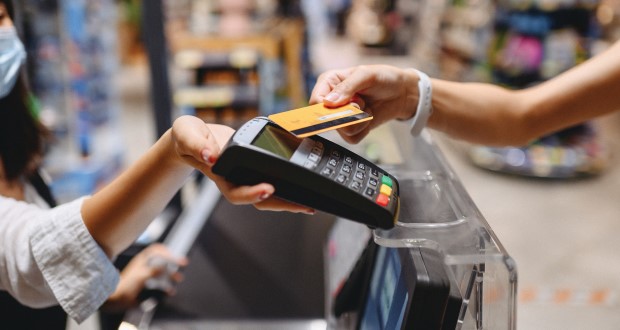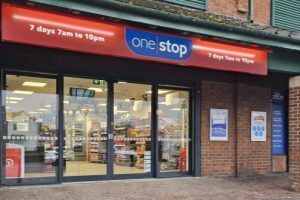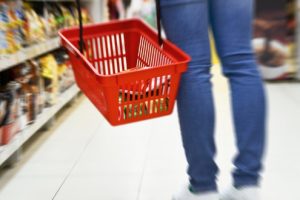That’s significantly lower than the latest CPIH inflation rate of 4.2 per cent and the smallest growth since September 2022.
Face-to-face retail (excluding groceries) was a major contributor to this slowdown, contracting 2.2 per cent.
Reassuringly, concerns about inflation, rising food prices and increasing household bills eased, while confidence in non-essential spending reached a two-year high.
Essential items saw less growth (2.3%) than in January (4.2%), with lower prices at the pump leading to a fall in fuel spending (-12.2%).
Food price inflation dropped to its lowest level since April 2022, at 7.0%, which contributed to supermarkets (3.9%) and food and drink specialist stores (2.7%) seeing lower uplifts than in January (both 5.2%).
The deceleration in food inflation has helped ease concern about rising grocery prices. While still high at 84%, this is the lowest figure recorded since Barclays started tracking this data point in December 2021.
Two thirds (66%) of Brits are still looking for ways to get more value from, or to reduce the cost of, their weekly shop. To save money, two fifths (42%) of this group have cut down on supermarket impulse buys, while a third is stocking up on their favourite or essential products when they are on offer.
A further quarter is sticking to basic ingredients or cupboard stables – such as pasta, rice and vegetables – to prepare simple, cheaper meals at home.
Recent supply chain disruption and the continuing impact of shrinkflation are front of mind for shoppers. Over half (51%) noticed supermarket products running out of stock in the last month, while three in 10 (29%) are specifically concerned about tea shortages, in light of reports of empty space on the shelves.
Concerns about the cost and size of products – owing to shrinkflation – remain high at 78%.
As a result, 63% of Brits say that they would like to see the government taking action to intervene – for example, by mandating manufacturers disclose changes in content, volume or weight on product labels.
Spending on non-essential items increased just 1.7% in February – the lowest growth since September 2022 – as wetter weather cast a cloud over multiple sectors and Brits spent more time indoors.
Face-to-face retail (excluding grocery shopping) and clothing stores saw declines of -2.2% and -1.0% respectively.
Consumers’ confidence in their ability to spend on non-essential items reached its highest point since November 2021 last month, at 59%.
Meanwhile, concerns about inflation, and rising household bills also softened to 84%, the most positive figures for more than two years – indicating that easing inflationary pressures are having a positive impact on household finances.
Karen Johnson, head of retail at Barclays, said: “The majority of shoppers have noticed the impact of supply issues on stock, with tea shortages causing the most concern.
“With Brits having reined in discretionary spending during the winter months, and as inflationary pressures begin to ease, retailers will be hopeful that the onset of warmer weather lifts spending – particularly if consumer confidence improves in the summer.”
Jack Meaning, chief UK economist at Barclays, said: “We have continued to see encouraging signs of slowing price growth so far in 2024, particularly in the retail sector.
“Recent data shows shop price and grocery inflation decelerated significantly in February, as retailers offered shoppers discounts and promotional offers.
“This will be a welcome reprieve for consumers, and a probable explanation of last month’s subdued card spending growth: while many people will have taken advantage of recent price promotions, they look to have held back on spending at least some of what they saved elsewhere.”
 Talking Retail Grocery and product news for independent retailers
Talking Retail Grocery and product news for independent retailers






